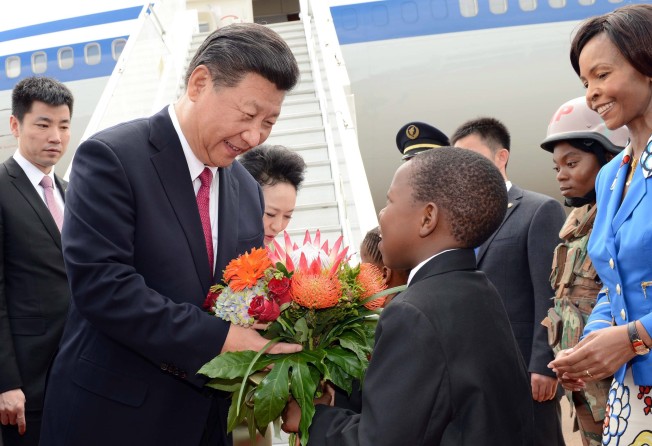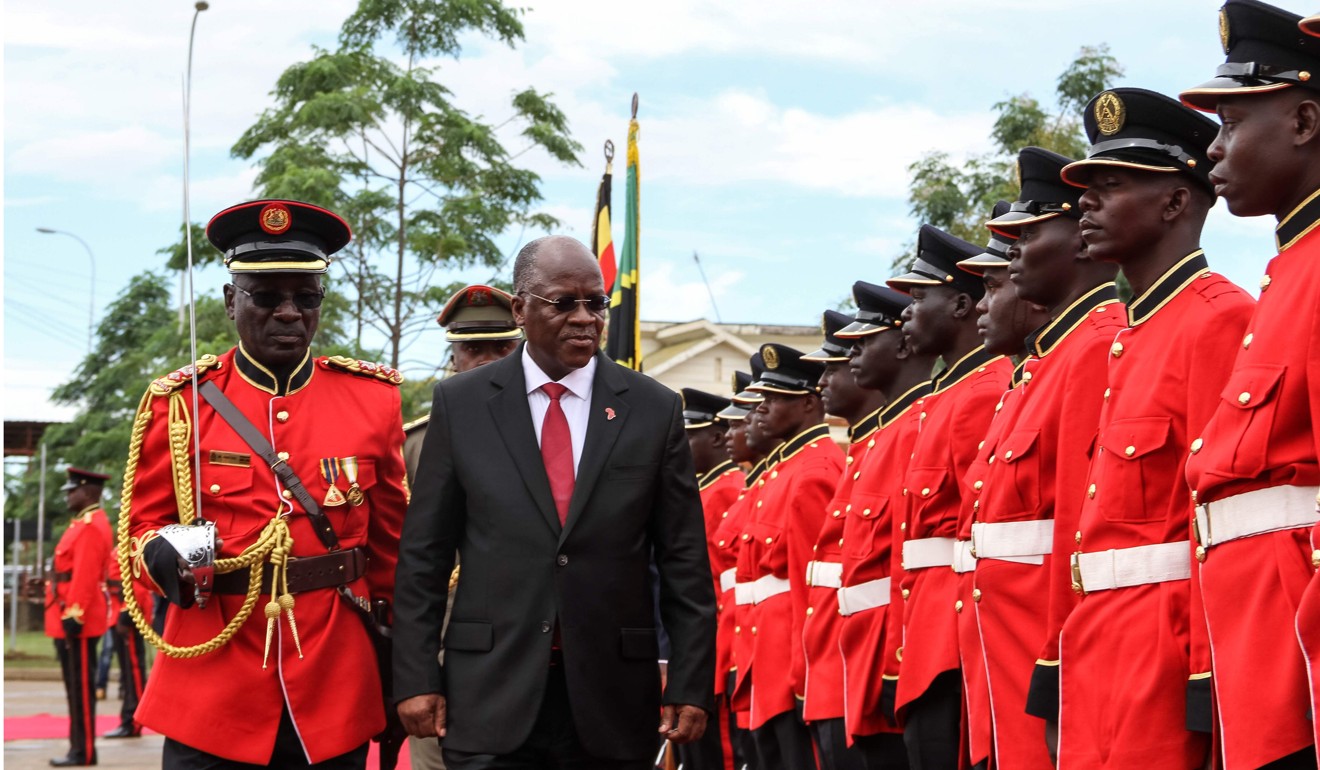Five ways China can be a friend to Africa as its footprint grows ever larger
Seifudein Adem says China has a constructive role to play in Africa in encouraging responsible government – not presidents for life – as well as in mediating its conflicts, helping in emergencies, and more

China’s growing footprint in Africa pits the optimists against the pessimists among China watchers. The former see China as a force for good in Africa; the latter less so. But are there not situations when China truly is a friend of Africa?
Broadly speaking, China is a friend to Africa in two scenarios: when it helps empower African peoples vis-à-vis their governments, and African states vis-à-vis the international system.
More specifically, China is a friend of Africa when its aid promotes not only economic development but also accountable governments in Africa. We know China does not champion liberal democracy, but it could openly shun the for-life presidents in Africa, like Robert Mugabe of Zimbabwe, who stay in office until they are forcefully retired. If the rotation of leaders after a specific period is a good thing for China, it should also be a good thing for Africa, and African governments that enjoy the legitimacy of their peoples are ultimately good for China.
China is a friend of Africa when it is more responsive to Africa’s humanitarian needs in case of emergency.
China is a friend of Africa when it plays a constructive role by mediating some of the conflicts between and within African states. It is a friend of Africa when it provides peacekeeping troops under the auspices of the United Nations or regional organisations, and when it takes seriously the idea of prosecuting war criminals and those who have committed crimes against humanity in Africa.
In carving up Africa in the 19th century, Europe was more concerned about its own balance of power than about Africa’s ethnic geography. Consequently, we have more than 50 multi-ethnic states of varying shapes and sizes today. A related point of significance is the issue of relations between ethnic groups. In many cases, people belonging to the ethnic group of the head of state in African countries automatically become the “chosen people”, with all the entitlements that go with it. The iron law of ethnic loyalty, otherwise known as tribalism, has proven resilient in Africa despite the colonial interlude. China could encourage us to practise genuine inter-ethnic power-sharing. It could stimulate us to learn best practises from one another. What could Ethiopia learn, for instance, from Tanzania’s inter-ethnic and inter-religious power sharing?

China is a partner of Africa when its loans to and investments in Africa are guided by clear indicators designed to foster accountable governance. China could also increase material and moral support for more responsive government and help African states who want to overcome economic impediments to more viable government. China is thus a friend when it continues to make capital and skill transfers to the continent on a scale that leads to a technological revolution.
Some of the above suggestions, of course, presuppose that China should eschew the principle of non-interference in African countries’ internal affairs. A strong case could be made that it should. For one, it is a principle to which China itself, arguably, pays only lip service ; and it is no longer espoused even by Africans. “Non-interference” has given way to “non-indifference” in African diplomatic discourse. But it cannot be denied that China is also a friend of Africa when it helps us deal with certain problems without excessive Chinese intrusion.
Regarding China’s role in empowering African states in the international system, we Africans rarely express our opinion about international developments unless the issue affects Africa directly. But this need not be, and it does not make sense to keep Africa out of the mainstream of international affairs today. Globalisation has made us so interdependent, exposing us in the process to reciprocal, if unequal, vulnerability. A local war with the participation of a major power could quickly morph into a regional and global war, threatening all inhabitants of Planet Earth, including Africans, just as the African condition has wider implications for security in the other parts of the planet.
China is also a friend of Africa when it helps African states empower themselves in the global system. It does this by supporting Africa in gaining access to and power in existing institutions such as the UN Security Council, but also in emerging ones such as the Asian Infrastructure and Investment Bank and the Silk Road Fund. Africa deserves greater power in these institutions not because it has now achieved power comparable to that of leading states but to compensate it for being marginalised in such institutions for so long. Bringing Africa into the realm of global decision-making in this way is also consistent with China’s vision of a multipolar international system.
The shadow of China’s presence in Africa is growing larger. But it is not too early to ask: when is China a friend of Africa?
Seifudein Adem, a native of Ethiopia, is a visiting scholar of African politics and Sino-African relations at Hong Kong Baptist University